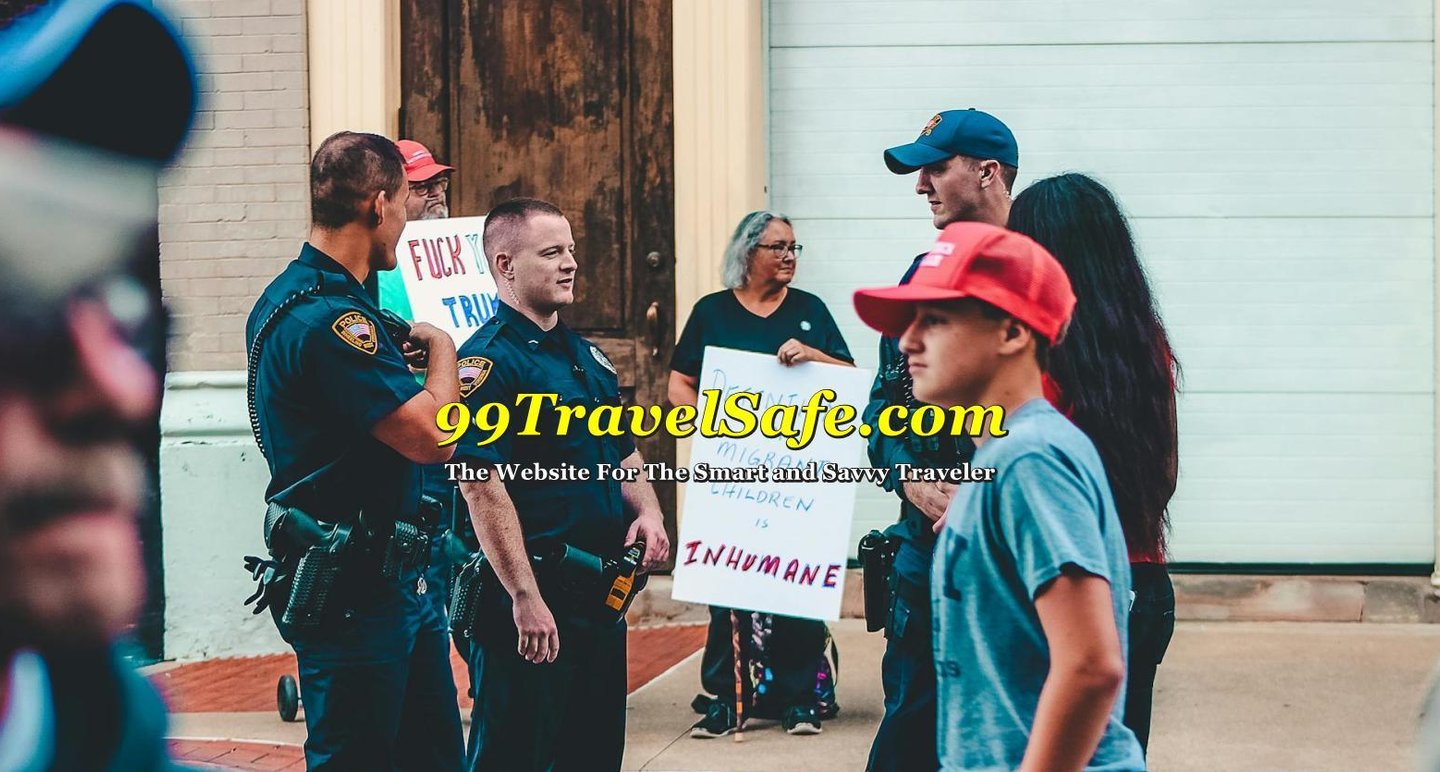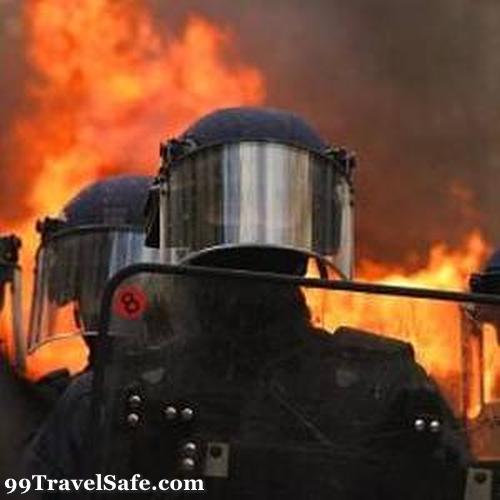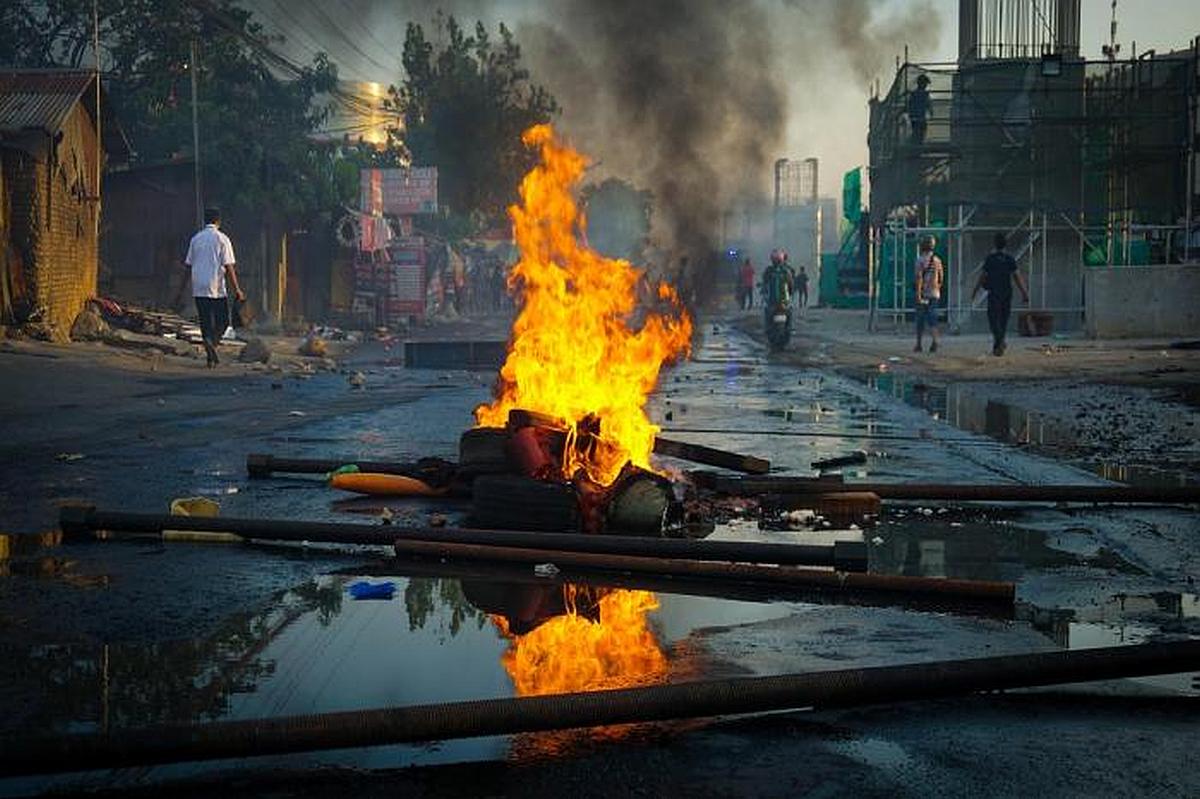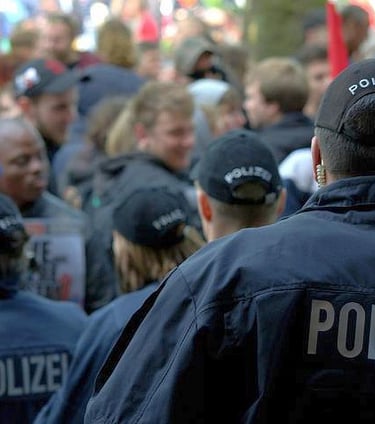

99TravelSafe.com
The Website For The Smart and Savvy Traveler
6 – Travel To High Risk, Violent and Dangerous Places!


Related Pages - Please Also See;
Advertisement
Please Click On 1-2 Ads To Support To Our Website - Thanks!
Travel to High Risk, Violent and Dangerous Places!


IF you must travel in an area where there has been a history of terrorist attacks, robbery, kidnapping, or other dangerous activity, make it a habit to discuss with your family what they would do in the event of an emergency!
Thoroughly research your destination before you leave, use google, bing, wikipedia, your local library or wherever any information is available. Know where to stay and which places to totally avoid. Learn as much as possible about the local culture
Make sure your affairs are in order before leaving home
Register with your embassy or consulate upon arrival. For US citizens visit
When you get to your destination remain friendly but be cautious about discussing personal matters, your itinerary or your program
Leave no personal or business papers in your hotel room
Keep your passport in the hotel-safe and carry a photocopy with you
Watch for people following you or observing your comings and goings!
Keep a mental note of safe havens, such as police stations,hotels & hospitals
Avoid public demonstrations and other civil or political disturbances
Exercise caution and leave the area if you find yourself unexpectedly in the vicinity of a large gathering or demonstration
Review your personal security plan.
Monitor local media for updates!
Keep a low profile and be aware of your surroundings
Carry identification and cooperate with authorities
Avoid loud conversations or arguments!
Let someone else know what your travel plans are. Keep them informed if you change your plans
Avoid predictable times and routes of travel and report any suspicious activity to local police and your nearest embassy or consulate
Do not follow the same routine every day
Select your own taxi cabs at random. Don't take a vehicle that is not clearly identified as a taxi
If possible, travel with others
Be sure of the identity of visitors before opening the door of your hotel room. Don't meet strangers at unknown or remote locations
Refuse unexpected packages!
Advertisement
Please Click On 1-2 Ads To Support To Our Website - Thanks!


Advertisement
Please Click On 1-2 Ads To Support To Our Website - Thanks!
More on Travel to High Risk, Violent and Dangerous Places!


If you are ever in a situation where somebody starts shooting, drop to the floor or get down as low as possible!
Don't move until you are sure the danger has passed. Do not attempt to help rescuers and do not pick up a weapon
If possible, shield yourself behind or under a solid object. If you must move, crawl on your stomach
Formulate a plan of action for what you will do if a bomb explodes or there is gunfire nearby
Check for loose wires or other suspicious activity around your car
Be sure your vehicle is in good operating condition in case you need to resort to high-speed or evasive driving
Despite all of your efforts to reduce exposure to risks and to avoid threats, you may still become the victim of a crime or critical event
Following are Some General Response Strategies:
-- Remain calm and alert!
-- Try first to defuse the situation!
-- Culturally appropriate greetings or humor may reduce tensions!
-- If an assailant demands property, give it up!
-- You can create a timely diversion by tossing your wallet, watch, etc. to the ground in the opposite direction you choose to flee
-- Against overwhelming odds (weapons, multiple assailants) try reasoning, cajoling, begging, any psychological ploy
-- Carefully note details of the environment around you (license plate number, distinguishing features, accents, clothing, etc.)
-- If you feel your life is endangered and you decide to physically resist, commit to the decision with ferocity while defending yourself
--Seek support for post-traumatic stress (even if you exhibit no symptoms)
Advertisement
Please Click On 1-2 Ads To Support To Our Website - Thanks!


Advertisement
Please Click On 1-2 Ads To Support To Our Website - Thanks!
Videos on Travel to High Risk, Violent and Dangerous Places!
Advertisement
Please Click On 1-2 Ads To Support To Our Website - Thanks!
